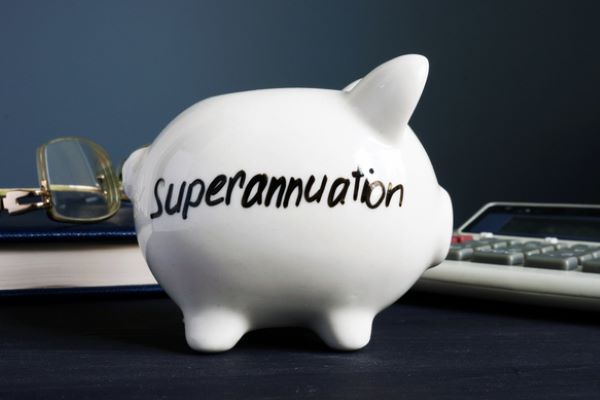Preserved Benefits
All contributions and investment earnings received by a Super Fund are classified as what they call ‘Preserved Benefits’. This means that they are not available for access until a ‘condition of release’ occurs. This is the trade-off of Superannuation – you enjoy the favourable tax treatment of super during your life (15% tax on earnings and contributions) but you cannot access it until later on in life.

So what are some of the ‘conditions of release’ that need to be met in order to access your super?
Some common ones include the following:
- Attaining age 65
- Death
- Retirement after reaching Preservation age (this is the legal age that you can access super)
- Severe financial hardship due to COVID-19 in order to get early release of super (2 x $10,000)
- Permanent incapacity
Some lesser known conditions of release are:
- Acquiring a terminal medical condition
- Severe financial hardship test (pre COVID-19)
- Having less than $200 on termination of employment
- Temporary incapacity
All of these conditions above have rules that need to be met so these need to be checked to ascertain eligibility before looking to apply.
We will concentrate in this article on the top three common condition of releases and any tax consequences in relation to these.
Attaining age 65
When you reach this age, you are able to start a retirement pension (income stream) out of your fund or access lump sums out of your super whenever you like without restriction. A pension of up to $1.6 million can be commenced. The benefit of commencing a pension is that the earnings at the fund level (subject to the $1.6M pension cap) will be taxed at 0%.
These payments will not be taxed or included in personal return as recipient is over 60 years old.
We aren’t certain whether the government will change this age in the future e.g. increase it to age 67 to align with Centrelink pension age.
Death
While this is not a happy event, it does allow for the super fund balance of the deceased to be paid out as a death benefit. Either as a death benefit pension to a dependent (e.g. spouse or minor children) or as a lump sum.
When the death benefit is paid to a tax dependent (e.g. spouse, minor child) there is no death tax at that point.
If the death benefit is paid to a non-dependent (e.g. to an adult child) then the dependent will be subject to 15% tax plus the Medicare levy on the taxable component of the balance. This can sometimes be a significant amount so a) you need to be aware of it and b) potentially plan for it.
Example
John dies with a Superannuation balance of $1 million with 50% being the ‘taxable component’ or $500,000 and a 50% tax free component.
Death benefits tax = $500,000 x 17% = $85,000.
As you can see from above, the tax can be quite significant. Two considerations may be:
- The death benefit can be paid to the estate and not directly to the beneficiary. This would save the 2% Medicare levy and also the tax will get paid by the estate. When it goes directly to the beneficiary, the Super Fund needs to withhold the tax and pay to the tax office so the fund needs to have sufficient liquid assets to do this.
- For single member funds where the first spouse has died – can the balance of the fund be paid out to the beneficiaries over a number of years whilst the member is still alive or some be invested in members personal name whilst still alive. This would reduce the death benefits tax although needs to be weighed up against what tax is incurred whilst member is alive.
Each members’ circumstances will vary so please seek advice before exploring options.
Retirement after reaching preservation age
Preservation age table
| Date of Birth | Preservation age (years) |
|---|---|
| Birthday before July 1960 | 55 |
| Birthday July 1960 to June 1961 | 56 |
| Birthday July 1961 to June 1962 | 57 |
| Birthday July 1962 to June 1963 | 58 |
| Birthday July 1963 to June 1964 | 59 |
| Birthday after June 1964 | 60 |
From the above table you can see that for most of us young ones in their 30’s and 40’s now, it won’t be until we’re at least 60 years old that we can access our super.
Please note: that if you reach your preservation age above but have not ‘retired’ you can still commence a ‘Transition to Retirement’ pension. This allows the member to access their super as an income stream, but they do not get the tax benefit of the earnings at the Super Fund level being tax free (the earnings in the fund will continue to be taxed at 15%).
If you can satisfy the condition of ‘retirement’, the earnings at the fund level will switch to being tax free (subject to $1.6M pension limit).
So what is ‘retirement’ under the Superannuation rules?
Past preservation age to less than 60
During this age, for the member to retire has to stop gainful employment and declare that they never intend to be gainfully employed for more than 10 hours a week again.
Because they are under 60, need to be alert here to any tax in personal name – generally any pension received from super will be included in the return of recipient with a 15% tax offset attached.
You can also withdraw lump sums up to a certain limit without getting taxed in own name.
Age 60 to less than 65
During this age the member either has to a) stop gainful employment and declare that they never intend to be gainfully employed for more than 10 hours a week again or b) an arrangement under which he or she is gainfully employed has terminated after age 60. So here, the person does not have to have stopped working as such.
Example
John works for two employers earning $75,000 salary from one and $25,000 from the other.
John would like to cut back his working hours and decided that we will stop working for the second employer. The employer confirms in writing that John has finished working for the company.
John is now free (if he wishes) to commence a ‘retirement pension’ for up to $1.6 million or to withdraw lump sums from the fund from his balance.
Should you wish to discuss any of the points above, please contact our Superannuation Specialists on (03) 9835 8200.
